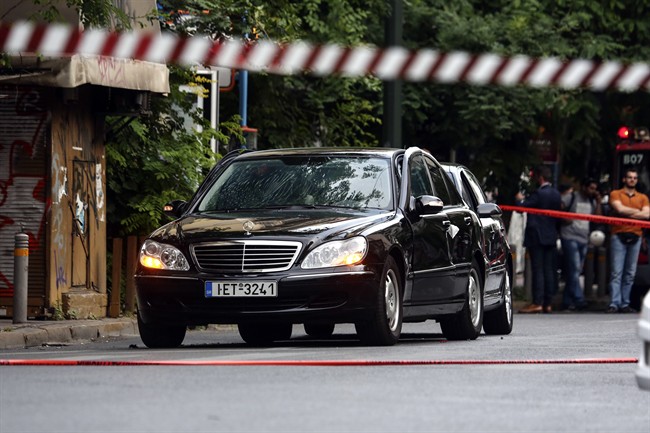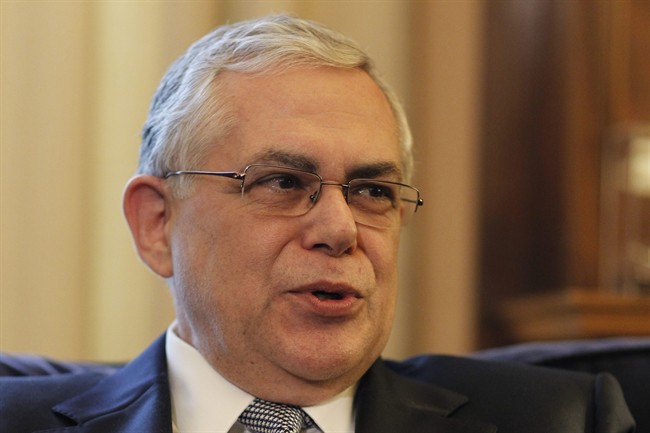A former Greek prime minister was injured when a booby-trapped package exploded in his car in central Athens on Thursday in the worst act of violence targeting politicians in the crisis-hit country for several years.

Lucas Papademos, who served a brief stint as caretaker prime minister in late 2011 to mid-2012, did not have life threatening injuries, authorities said. An Athens hospital source told Reuters he was being treated for superficial wounds to his abdomen and a slightly deeper injury to his right leg.
Papademos, 69, a former central banker who held a senior role in the European Central Bank, was hurt when the package he opened in his car exploded.
There was no immediate claim of responsibility.
READ MORE: Manchester bombing suspect Salman Abedi called mom before attack: ‘forgive me’
Greece has a history of small-scale attacks against politicians, businesses and police.
A Greek urban guerilla group is thought to have dispatched a batch of letter bombs addressed to European public figures and discovered by Greek authorities in March.
But Thursday’s blast, in which a hospital official said two others in the vehicle were also hurt, was the most prominent since a booby-trapped package killed a guard for the then public order minister, Michalis Chrysohoidis, in 2010.

Get daily National news
Papademos, a low-key economist who is more of a technocrat than a politician, was catapulted to the forefront of Greece’s debt crisis when he was coaxed into briefly becoming caretaker prime minister from late 2011 to May 2012, fusing a fragile governing coalition between socialists and conservatives.
The country remains in recession with the highest unemployment rate in Europe, and a stalled creditor review has interrupted payouts under its international bailout program, its third since 2010.

Rush hour
Papademos served as Greek central bank governor from 1994 to 2002, and as vice-president of the European Central Bank from 2002 to 2010.
ECB president Mario Draghi condemned the attack: “We are saddened by the attack against our former colleague, Lucas Papademos, a brave public servant of Greece and Europe.”
Papademos had been in retirement since stepping down as prime minister in May 2012 following elections in the country.
Footage from the scene, at a busy intersection in central Athens during rush hour, showed a black vehicle with its hazard lights on, virtually undamaged save for extensive cracks on the front windscreen.
Greek media reported the vehicle was armored, containing the blast within its interior.
“I felt my car shake … it was like a small earthquake,” a witness told Greece’s Skai TV. “It was total panic.”
A Greek central bank source said Papademos had earlier left the Bank of Greece building when the explosion occurred.
It was unclear where the suspect package was picked up. A police source said fragments of an envelope found at the scene of the incident suggested it was addressed to the Academy of Athens, of which Papademos is president.
An envelope containing bullets and addressed to Greece’s general secretary for public revenue was intercepted at a post office branch in Athens on Tuesday.
In March, police intercepted eight suspect packages at a postal sorting center in Athens, days after letter bombs were sent to the German Finance Ministry and the IMF in Paris. The rigged package to the IMF exploded, injuring an employee, while the one sent to Germany was detected by scanners.
A Greek militant group, Conspiracy of Fire Cells, claimed responsibility for the first suspect package sent to Germany and intercepted on March 15.







Comments